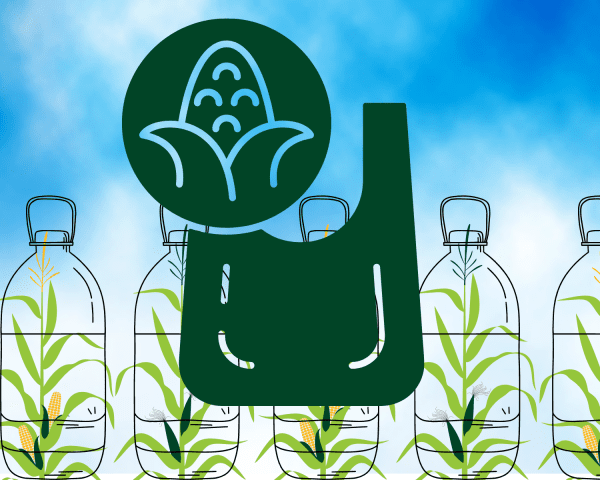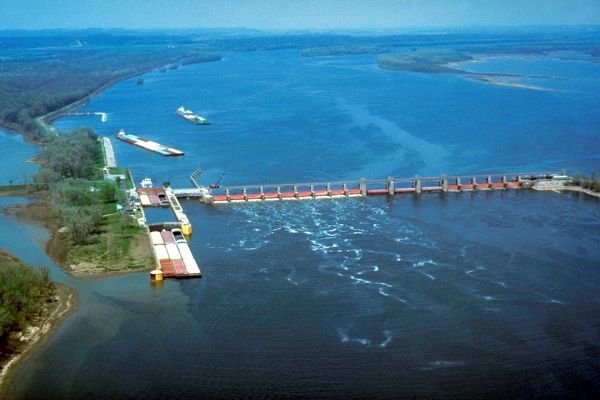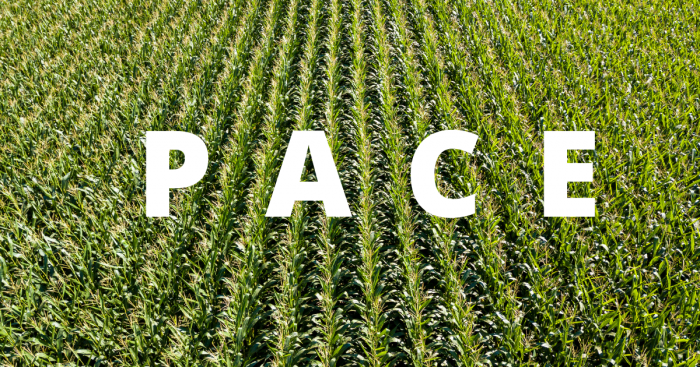Featured Article

January 27, 2022
For the second time, IL Corn will air positive corn and corn farmer messages during football’s biggest game on February 13, 2022. The farmer-led checkoff association will focus on positioning corn as a solution to global challenges. To better understand this goal, visit www.watchusgrow.org/corn . “We all know that corn and corn products are renewable, sustainable, and often replace other goods that can be more challenging for our environment. Corn-based ethanol is cleaning burning and produces less greenhouse gasses than petroleum-based fuels. Corn-based plastics biodegrade faster and reduce petroleum use. Corn plants themselves pull carbon from the air and sink that carbon into the soil. We are trying to make sure the non-farmers in our state understand the important ways corn farmers contribute to positive global solutions,” said Mark Wilson, chairman of the IL Corn Marketing Board.

January 25, 2022
You already know that corn can be a solution to so many of our world’s climate challenges, but do you know enough about each renewable opportunity to explain it to your off-the-farm peers? In this article we explore Polylactic Acid (PLA) or corn plastic. We all know what plastic does to our environment – that’s why for years scientists have been working and researching ways to make biodegradable and eco-friendly products from renewable resources. Replacing petroleum-based plastics with bio-based plastics could reduce industrial greenhouse gas emissions by 25%, according to a 2017 study . Read more benefits below.

January 20, 2022
Today, the IL Corn Growers Association named Matt Rush, a Fairfield, IL farmer, the new Vice President of the association. Rush will serve until November 2022 after Terry Smith of Clayton, IL was unable to complete his term as Vice President. “We’re thrilled to have Matt step in as Vice President, says Marty Marr, ICGA President, “We will benefit from his leadership and strategic thinking skills.” During his six-year tenure on the ICGA Board of Directors, Smith served as Industrial Committee Chair, Exports Committee Chair, Secretary and Treasurer. He also served a term on the Market Development Action Team for the National Corn Growers Association (NCGA) from 2020-2021 and the NCGA Feed, Food and Industrial Action team in 2019. The association is extremely grateful for Smith’s contribution to Illinois corn farmers, specifically his extensive knowledge of ethanol issues and thanks him for his service.

January 19, 2022
Funding to complete design and construction for Lock 25 near Winfield, MO on the Mississippi River is included in the Army Corps of Engineers budget presented to Congress today to allocate the funding named in the infrastructure package passed on November 5. Total allocated funds for Lock 25 are $732 million dollars. Also included in the budget are $466 million for the Kentucky Lock on the Tennessee River, $858 million for Montgomery Lock on the Ohio River, $52 million for TJ O’Brien Lock and Dam on the Illinois River, $109 million for the Three Rivers at the Port of Pittsburgh, totaling $2.22 billion in total inland construction.

January 13, 2022
The EPA is issuing seven-year registrations for two herbicide products, Enlist Duo and Enlist One, to ensure growers have access to effective pesticide tools for the 2022 growing season. The new product labels, which incorporate robust control measures to protect non-target plants and animals, meet Federal Insecticide, Fungicide, and Rodenticide Act (FIFRA) standards and comply with the Endangered Species Act (ESA). Enlist Duo and Enlist One are herbicides used to control weeds in conventional and genetically-modified corn, cotton, and soybean crops. Both products, registered in 2014 and 2017, respectively, were set to expire in January 2022 if the Agency did not renew their product registrations. Based on EPA’s thorough analysis of scientific data, evaluation of cost-benefit information, and discussions with industry stakeholders, the Agency has determined that Enlist products, with the new protective measures in place, should remain available to most American farmers. To evaluate the proposed uses of the Enlist products, EPA evaluated the potential effects of these products on federally threatened or endangered (listed) species, and their designated critical habitats, and initiated ESA consultation with the U.S. Fish and Wildlife Service. EPA determined that the use of Enlist Duo and Enlist One are likely to adversely affect listed species but will not lead to jeopardy of listed species or to the destruction or adverse modification of designated critical habitats. EPA also anticipates that the new protective measures will reduce the potential for "take." In addition to EPA’s effects determination, EPA also completed a comprehensive ecological risk assessment that assessed the risks of 2,4-D choline salt (2,4-D), an active ingredient in both Enlist products, and glyphosate dimethylammonium salt (glyphosate), an active ingredient in Enlist Duo. EPA's ecological assessment found direct risks to non-listed and listed plants from pesticide runoff (i.e., pesticide carried off the application site following rainfall or irrigation) and risks to animals that rely on these affected plants for diet or habitat, including non-listed and listed animals and some designated critical habitats. EPA’s ecological assessment also found direct effects to bees and listed species that use corn, cotton, and soybean fields for diet and/or habitat. Based on these findings, EPA is requiring the implementation of a variety of protective measures as a condition of the product registrations. Some of the protective measures EPA is taking include: Prohibiting Enlist product application when rainfall is expected to occur within 48 hours and when soil can no longer absorb water; Prohibiting irrigation that would result in runoff within 48 hours of application of the Enlist herbicide products; Requiring users to select from a list of runoff reduction measures to reduce 2,4-D and glyphosate concentrations in runoff, while also providing users with flexibility; Minimizing Enlist product application when soybean and cotton crops are in bloom to reduce risks to insect pollinators, such as honey bees; and Requiring the registrant to develop and provide mandatory education and training materials that emphasize the importance of pollinators and pollinator habitat for species including, but not exclusive to, monarch butterflies. EPA will also be prohibiting the use of Enlist Duo and Enlist One in counties where EPA identified risks to on-field listed species that use corn, cotton or soybean fields for diet and/or habitat. EPA does not expect this measure to disrupt the use of Enlist products for most American farmers—the counties where use will be prohibited by these new measures represents approximately three percent of corn acres, eight percent of cotton acres, and two percent of soybean acres nationally. The “likely to adversely affect” (LAA) determination means that EPA reasonably expects that at least one individual animal or plant, among a variety of listed species, may be exposed to the pesticide at a sufficient level to have an effect, which will be adverse. The LAA threshold for a Biological Evaluation (BE) is very sensitive because the likely “take” of even one individual of a species, which includes unintentional harm or death, triggers an LAA determination. This is the case even if a species is almost recovered to a point where it no longer needs to be listed. As a result, there is a high number of “may affect” and LAA determinations in these BEs. An LAA determination, however, does not necessarily mean that a pesticide is putting a species in jeopardy. Jeopardy determinations will be made by the U.S. Fish and Wildlife Service and the National Marine Fisheries Service in the course of formal consultation that evaluates any effects of the pesticides on entire species. To view the final registration for Enlist Duo and Enlist One, go to docket EPA-HQ-OPP-2021-0957 . To learn more about Enlist Duo and Enlist One, read EPA’s Q&A .

January 6, 2022
WHAT Post Application Coverage Endorsement – An insurance product to cover the risk of not getting farmers in-season nitrogen applied. WHY Our internal data indicates the number one reason farmers are hesitant about putting a higher % of N on in-season, is fear of not getting it applied. We also know in many years, the concern of not getting N on in-season also leads to over application and more nitrogen being susceptible to loss (the I’ll add an extra __ units now just in case mindset).
Articles
2026
2025
2024
2023
2022
2021
2020

